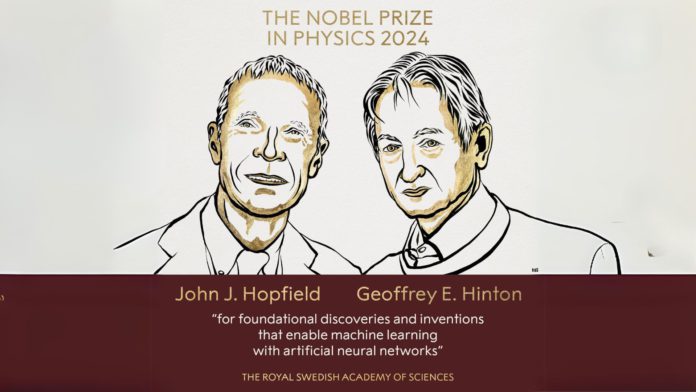The Royal Swedish Academy of Sciences awarded Geoffrey E. Hinton and John J. Hopfield the 2024 Nobel Prize in Physics. They received this honor for their foundational work in artificial neural networks, which are central to modern machine learning.
John Hopfield developed the Hopfield network, a system that can store and reconstruct patterns using physics principles that explain a material’s characteristics based on atomic spin. The network is trained by adjusting the connections between the nodes so that the stored images have a low-energy state. This method enables the network to recognize distorted images and update node values to minimize its energy, recreating the saved pattern.
Geoffrey Hinton built upon Hopfield’s work and introduced a new neural network, the Boltzmann machine. It uses statistical physics to identify data patterns and can classify images. The neural network can also generate new photos similar to the patterns it was trained on.
Read More: LambdaTest Launches KaneAI for End-to-End Software Testing
Hinton is rightly called the “Godfather of AI” for his contributions to artificial intelligence. He developed practical applications of deep learning technology and, along with his students Alex Krizhevsky and Ilya Sutskever, created an eight-layer neural network program called AlexNet.
Geoffery’s work, including backpropagation, distributed representations, and time-delay neural networks, has significantly impacted the development of advanced AI models today.
Prestigious organizations worldwide have recognized his accomplishments and honored him through awards. These include the Cognitive Science Society’s David E. Rumelhart Prize, the Gerhard Herzberg Canada Gold Medal, the Turing Award, and the Royal Society’s Royal Medal.
Despite his achievements in the field, Hinton has publicly opposed using AI for military applications and its potential to generate fake content and disrupt job markets. “I am worried that the overall consequence of this might be systems more intelligent than us that eventually take control,” said Hinton, expressing his concern about the unethical use of AI.


